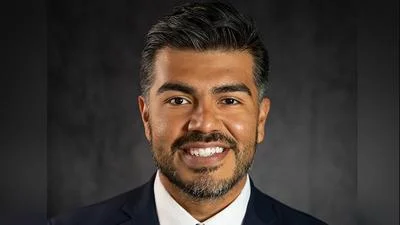Illinois state Sen. Bill Brady (R-Bloomington)
Illinois state Sen. Bill Brady (R-Bloomington)
Reform for Illinois' Alisa Kaplan just wants to see Republican state Sen. Bill Brady (Bloomington) do the job the people of the 44th District entrusted him to do.
“He has a responsibility to act ethically when conflicts like this arise,” Kaplan, policy director for the research and advocacy group, told Prairie State Wire. “As an organization, that’s what we believe about that.”
Some are questioning if Brady is meeting that responsibility, given the reported findings of a recent ProPublica Illinois/WBEZ Radio investigation published by the Chicago Sun-Times. That report questioned whether certain lawmakers like Brady who stood to have a major voice in last weekend's legislative approval of a tax hike on Illinois gambling may have had ulterior motives based on their previously undisclosed financial connections to the industry.

Reform for Illinois Policy Director Alisa Kaplan
| https://www.reformforillinois.org
Joining Brady on the list was Chicago Democrat Antonio Munoz, the assistant Senate majority leader who, like Brady, failed to disclose ties to the gaming industry that have resulted in hefty personal profits.
According to Illinois Gaming Board records, Brady has long been listed as a PSIC, or what’s known as a “person with significant influence or control,” at Midwest Electronics Gaming (MEG), one of the largest video-gaming operations in the state. The senator receives a percentage of proceeds from slot and poker machines affiliated with MEG, which over a recent six-year stretch netted at least $80 million in revenues.
Such an arrangement also means that any new taxes imposed against the industry stand to directly impact Brady and his profit margins. Those profits come through Brady Ventures, the company he and his wife – who is also listed as a PSIC – have owned since 2011, according to gaming board records.
The legislation successfully passed the House and Senate on Sunday and will become law when, as expected, Gov. J.B. Pritzker signs on the dotted line. As part of the bill, the tax on video-gaming machines will increase 3 percent on July 1, with another 1-percent increase a year after that.
While Kaplan was careful not to point any accusatory fingers in Brady’s direction, others have not been quite so diplomatic in questioning how Brady or any other lawmaker in the same position can truly be objective at a time when state leaders are determined to generate more revenue for a much-needed capital program and to finally balance the state budget.
Through it all, Brady has maintained he has operated above-board, even going so far as to abstain from Sunday's Senate vote and others where even the potential for a conflict could have emerged. With Gov. J.B. Pritzker pegging the amount he hopes to raise from a gaming tax in the neighborhood of $90 million, gambling operators across the state have sought to brand themselves as small businesses who would be disproportionately impacted by such legislation.
In truth, video gambling machines have become big business in Illinois, attracting national casino companies, private equity and hedge fund operators alike. Over a six-year period stretching through 2018, the top five video gambling operators in the state controlled nearly 50 percent of the market to the tune of grossing nearly $1 billion in revenues.
Over that same time, tax rates on video gambling in Illinois have remained among the lowest in the country at 30 percent, even as casinos across the state have continued to face levies at progressive tax rates. Ironically, Brady voted against so-called Video Gaming Act legislation that legalized the industry in 2009. But by 2016, he was working as a sales agent with MEG and in less than two years had been designated as a PSIC.
“Again, we can only hope that Sen. Brady is doing the job he was elected to do,” Kaplan added.






 Alerts Sign-up
Alerts Sign-up